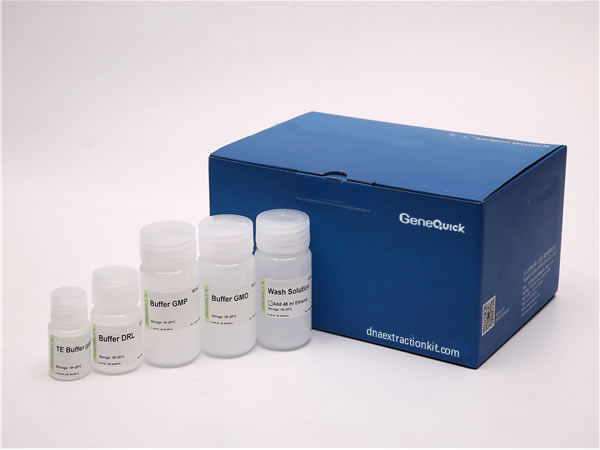What is Silica Beads DNA Extraction Kit for Environmental Samples?
Silica beads DNA extraction kits for environmental samples are specialized laboratory tools designed to isolate and purify DNA from complex environmental materials like soil, water, or air filters. These kits use tiny silica beads that bind to DNA molecules, allowing scientists to separate DNA from other substances in the sample. This process is crucial for studying biodiversity, monitoring ecosystems, or detecting pollutants through genetic analysis. Unlike methods for simpler samples, environmental kits are optimized to handle inhibitors and contaminants commonly found outdoors, ensuring reliable results for research and conservation efforts.
Environmental samples often contain diverse microorganisms, plant debris, or animal traces, making DNA extraction challenging. The silica beads method efficiently captures DNA even from low-quality or degraded samples, which is common in outdoor settings. By providing a clean DNA extract, this kit supports downstream applications like PCR or sequencing, helping researchers uncover genetic information from natural habitats without the interference of environmental impurities.

Technical Specifications
| Model | Method | Sample | Format | Workflow |
|---|---|---|---|---|
| S-ENV-20R | Silica Beads | Environmental Samples | 20R | Manual |
| S-ENV-50R | Silica Beads | Environmental Samples | 50R | Manual |
| S-ENV-100R | Silica Beads | Environmental Samples | 100R | Manual |
| S-ENV-200R | Silica Beads | Environmental Samples | 200R | Manual |
| S-ENV-8R | Silica Beads | Environmental Samples | 8R | Semi-automated or Fully Automated |
| S-ENV-24R | Silica Beads | Environmental Samples | 24R | Semi-automated or Fully Automated |
| S-ENV-48R | Silica Beads | Environmental Samples | 48R | Semi-automated or Fully Automated |
| S-ENV-72R | Silica Beads | Environmental Samples | 72R | Semi-automated or Fully Automated |
| S-ENV-96R | Silica Beads | Environmental Samples | 96R | Semi-automated or Fully Automated |
Working Principle
The principle behind silica beads DNA extraction kits for environmental samples relies on the affinity of DNA molecules for silica surfaces under specific chemical conditions. The process begins by lysing the sample to release DNA, often using buffers that break down cell walls and denature proteins. Chaotropic salts are added to create a high-salt environment that promotes DNA binding to the silica beads. As the mixture is incubated, DNA adsorbs onto the beads' surface due to hydrogen bonding and ionic interactions.
Subsequent washing steps remove impurities, such as proteins, salts, and environmental inhibitors, while the DNA remains bound to the beads. Finally, a low-salt buffer or water is used to elute the pure DNA, breaking the bonds and releasing it into solution. This method leverages the selective binding properties of silica, ensuring that only nucleic acids are captured and purified, making it highly effective for complex environmental matrices where contaminants are prevalent.
Performance
The performance of silica beads DNA extraction kits for environmental samples is evaluated based on their efficiency in yielding high-quality DNA with minimal contamination. These kits typically achieve high recovery rates, meaning they can extract a significant amount of DNA even from samples with low biomass, such as soil or water with sparse microbial life. The silica beads technology ensures that the DNA is pure and intact, reducing the presence of inhibitors like humic acids or metals that are common in environmental contexts and could disrupt further genetic testing.
In practical use, these kits demonstrate consistency across various environmental conditions, providing reproducible results for quantitative studies. They are designed to work with automated systems, speeding up the extraction process while maintaining accuracy. Performance metrics often include DNA concentration, purity ratios (e.g., A260/A280), and compatibility with advanced molecular techniques, making them a trusted choice for environmental scientists aiming for reliable genetic data.
Application
Silica beads DNA extraction kits for environmental samples have broad applications in fields like ecology, environmental science, and public health. They are used to extract DNA from soil to study microbial communities, from water to monitor water quality and detect pathogens, or from air filters to analyze airborne biodiversity. This enables researchers to track changes in ecosystems, assess the impact of pollution, or identify invasive species through genetic markers.
Additionally, these kits support forensic environmental investigations, such as identifying biological evidence in outdoor crime scenes, or agricultural studies by analyzing soil DNA for crop health. In conservation efforts, they help in monitoring endangered species by extracting DNA from environmental samples like feces or hair left in habitats. The versatility of these kits makes them essential for any project involving genetic analysis of natural environments, contributing to advancements in sustainability and disease prevention.
Core Features and Advantages
The core features of silica beads DNA extraction kits for environmental samples include their high binding capacity for DNA, which allows efficient extraction even from dilute or heterogeneous samples. They are designed with optimized buffers that mitigate the effects of common environmental inhibitors, such as polyphenols or heavy metals, ensuring that the extracted DNA is suitable for sensitive downstream applications like next-generation sequencing. The kits often come in formats compatible with high-throughput workflows, saving time and reducing manual errors in laboratories.
Advantages of using these kits include their robustness across a wide range of environmental sample types, from soil and water to biofilms and sediments. They offer scalability, from small research projects to large-scale environmental monitoring, and are cost-effective due to their reusability and minimal reagent consumption. Compared to other methods, silica beads kits provide faster processing times and higher purity outcomes, making them a preferred choice for researchers dealing with challenging environmental samples that require reliable genetic analysis.